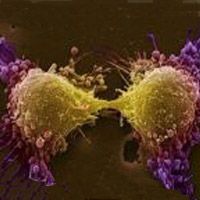Pain Medicines Can Be Used as Anti-Cancer Therapies
Pain medicines in combination with metal ions can work to fight chemo-resistant cancer.

Pain medicines in combination with metal ions can work to fight chemo-resistant cancer, according to a report published in Inorganic Chemistry.
A multifaceted team of researchers prepared compounds containing the molecules from pain medicine and metal ions in order to test the theory that this combination would show promise as anti-cancer agents. Independently, the researchers noted, the compounds had each been show to be viable candidates for further exploration as anti-cancer agents. They suggested cisplatin as an example: the platinum based therapy has been used for years to fight lung, ovary, and other cancers. However, the researchers added, a resistance to the therapy often develops.
“The nature of the ligands as well as the relative ratio between the two active units, i.e. the metal fragment and the bioactive organic drug moiety, strongly influences the biological activity,” the study authors wrote.
The researchers found that non steroidal anti inflammatory drugs (NSAIDs) can work against cancers and boost the activity of other drugs used alongside them. The researchers used indomethacin and diclofenac with ruthenium and osmium ions to see if they could develop and effective combination.
The NSAIDs attached to either the organometallic moieties via monodentate (such as pyridine or phosphine) or bidentate (bipyridine) ligands which allow the ruthenium and osmium arene complexes to be effective.
After creating several different NSAID/ metal ion complexes, the researchers characterized and categorized their structures to test them in the lab based on their ability to fight cancer. There were some compounds, the authors said, that were more effective in fighting ovarian cancer cells than cisplatin was. While there were a few compounds significantly more toxic to cells resistant to cisplatin than to healthy cells, the researchers believe that they are still a viable option to reduce side effects in the future.